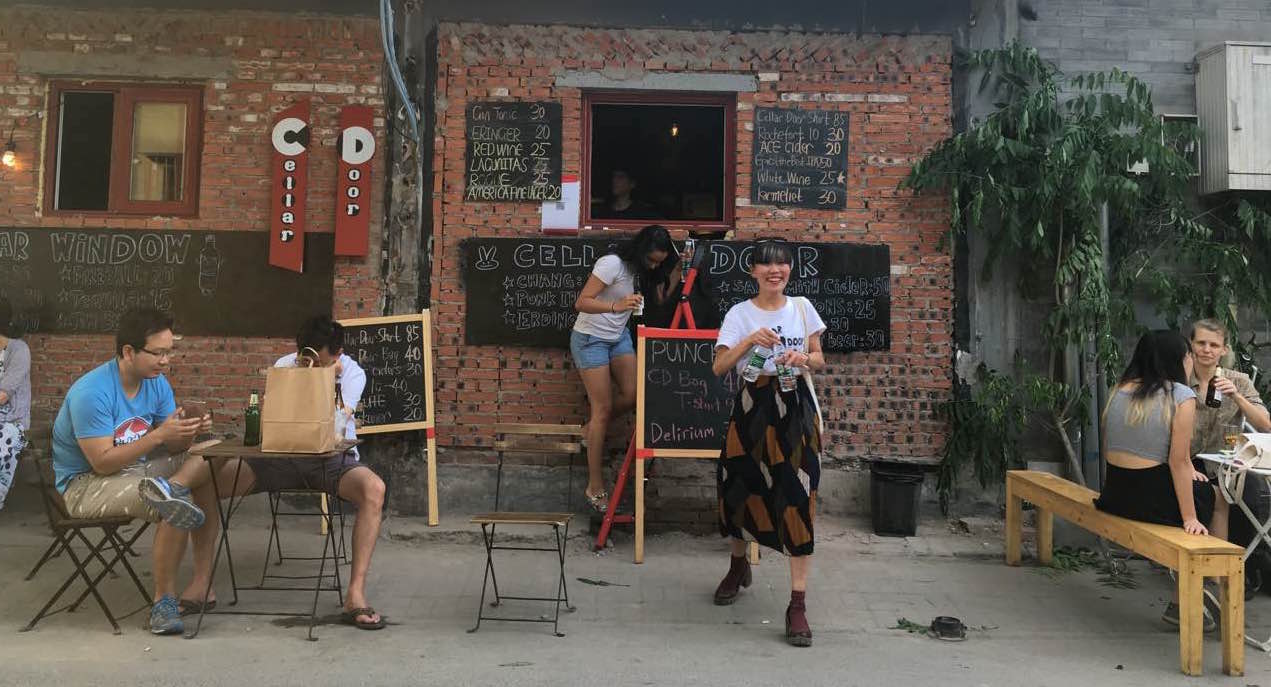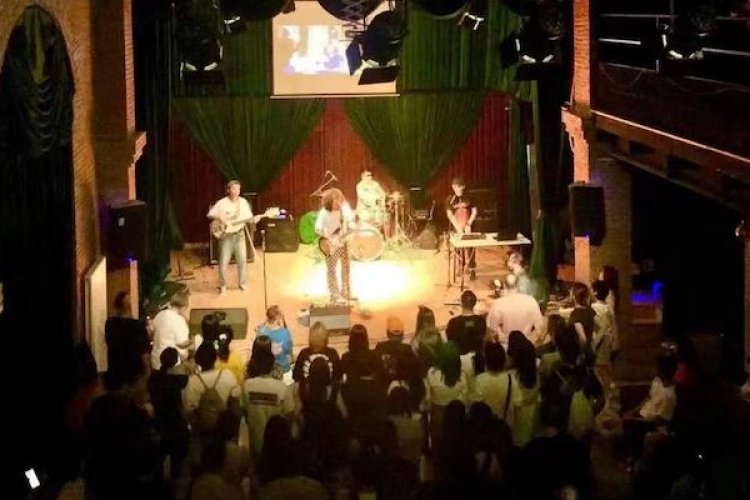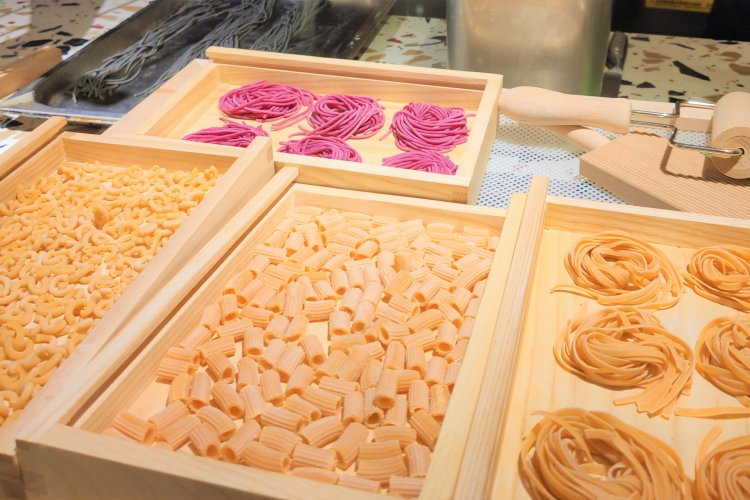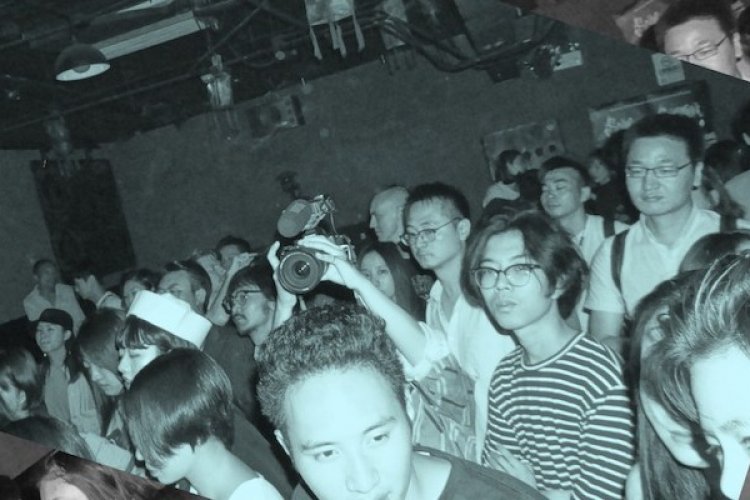Fangjia Bar Cellar Door Sets Farewell Party for Sep 2, Prompting Hutong Devotees to Dwell on Old Beijing's Fate
She put up an admirable struggle, but Xiao “Rain” Yu says it's finally time to move on from running her beloved Fangjia Hutong bottle bar Cellar Door.
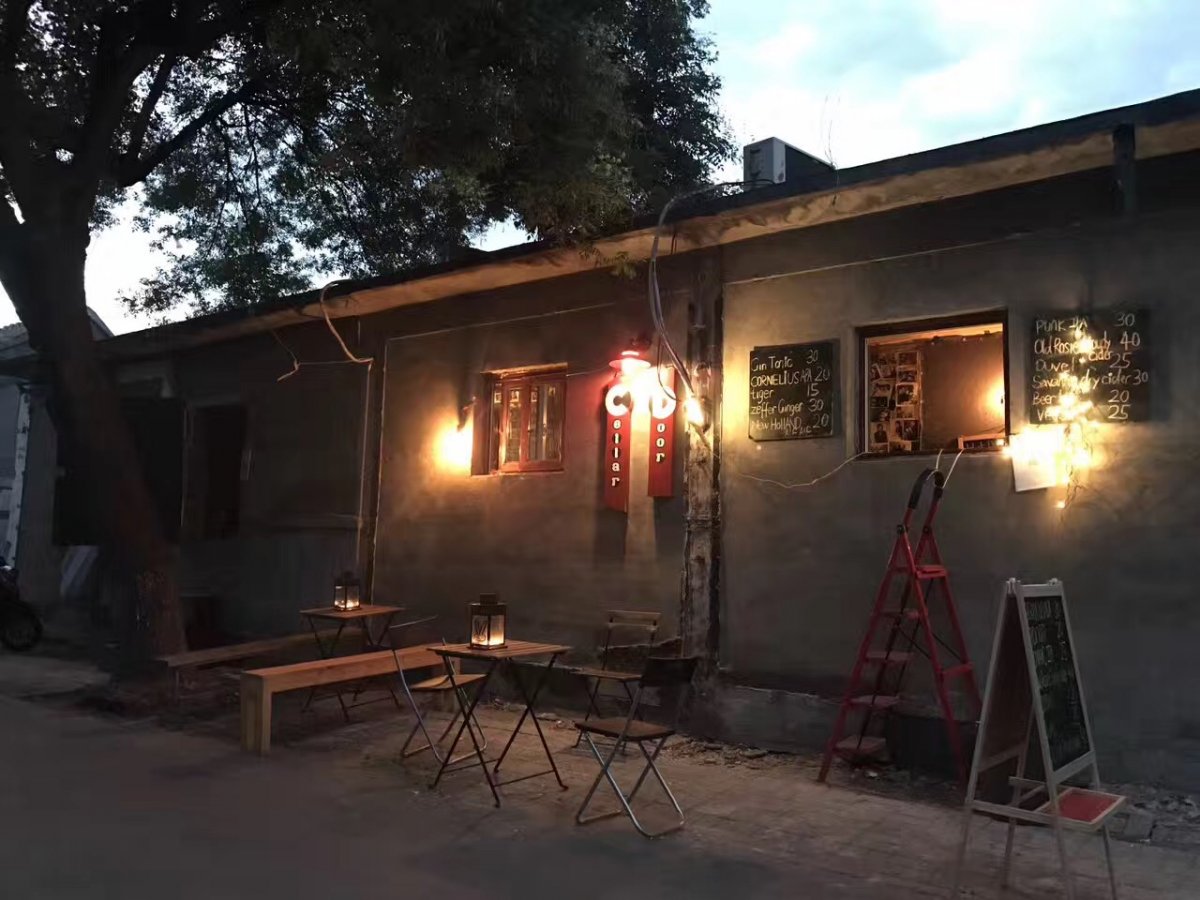
The small establishment – known for its well-priced imported beer that patrons would knock back while seated at simple, street-side tables – has been beset as of late by Beijing's aggressive redevelopment push. But unlike many other hutong bars that were quickly bricked up and shut down because of those policies, Cellar Door managed to limp along for months after first being hit by those issues. The authorities attempted to block off the premises earlier this summer, for instance, but Rain just set up a ladder so that patrons could peek in through an upper gap in the bricks out front and place their order. She then cheekily renamed the bar Cellar Window, and told the Beijinger at the time, back in June, "I will keep trying to keep it alive and find a way."
READ: Fang Bar Bids Farewell to Fangjia, Set to Reopen at Jiaodaokou on Saturday (Sep 2)
Rain now tells us that she and her husband plan to move to England in January, a plan that they had been delaying in recent years because of Cellar Door's success. She knew this day would come eventually because the authorities have put up too many hurdles for businesses like hers to maintain their licenses. All the same, Rain says she is heartbroken to say goodbye to her little bar, saying, "I feel like it's my baby."
Some of her favorite memories of running Cellar Door include hosting indie rockers like Swans when they performed in Beijing a few years back, and her friend Edward Steed, a cartoonist for The New Yorker, drawing this tribute to the beleaguered bar:
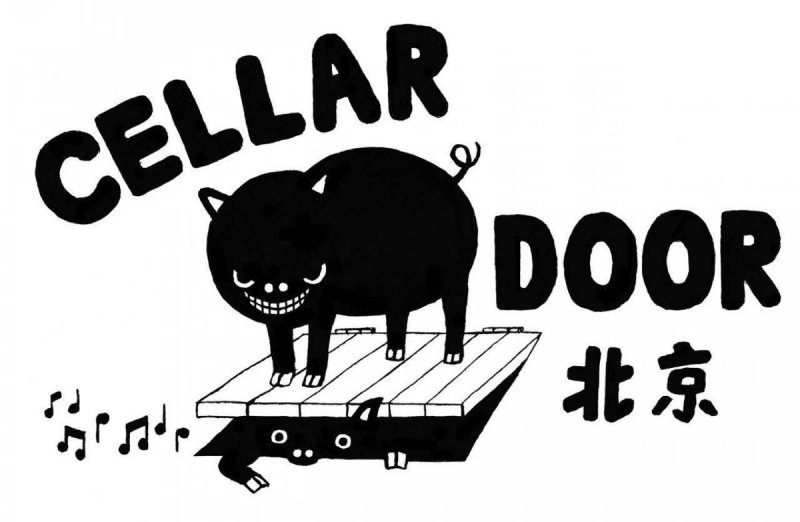
Amy Daml, a frequent Cellar Door patron and co-creator of the art aggregator website Loreli (which has coordinated tributes to many bricked up hutong bars), says she'll miss Cellar Door because "It was one place you could be guaranteed to run into someone you know and get sucked into staying way past your bedtime on a school night." She adds that the bar was part of a unique to Beijing "community of people with common interests who all live in each other's backyards in a wild and chaotic environment where the best and worst could happen at any moment. Cellar Door was a hub for this and its loss will be another weight added to our already heavy hearts."
Daml's Loreli cohort, Kerryn Leitch, says she admires Rain's steadfastness throughout its recent issues. "She is one tough chick. She made the neighbors [local hutong residents] crazy and gave no f*cks about it. I haven't seen a single other bricked business that has had the gall to just make their own door. It couldn't last and it hasn't, but she has done things on her own terms to the last."
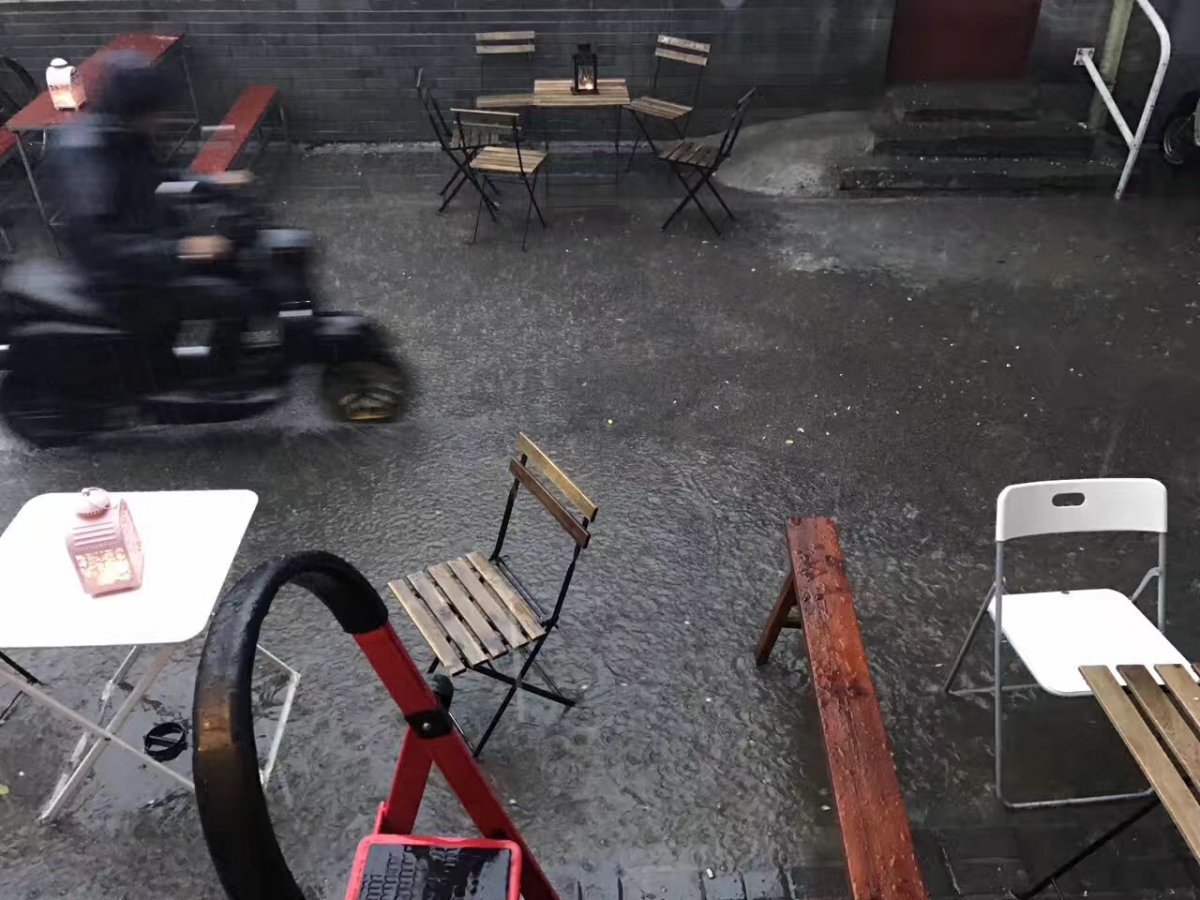
And while some skeptics might have no love lost for such hutong bars, deeming them to be magnets for drunken laowai and public nuisances, for Beijing locals, that's by no means the consensus. Fiona Fu was among many of the Chinese patrons who also enjoy frequenting humble hutong bars like Cellar Door, saying: "I'll always remember going on a late cold winter night with a couple of friends sitting at the table, lit by a blurry candlelight, having interesting and inspiring conversations."
Indeed, Fu sees the situation as quite complex, and also troubling. "On one hand, I understand it must be a pain in the ass for locals who live in the hutongs to see so many people out drinking so near their homes ... On the other hand, I have to say, it is heartbreaking to see these places go. To me, the hanging out experience in this area is not as chaotically nasty as Wudaokou, or as snobbishly commercial as Santilun or CBD. I think the authorities are trying to improve it in its own way, while ignoring the demand of the businesses and the culture cultivated from it."
READ: Moxi Moxi Closes Yet Again, Owners Vow to Open Elsewhere Soon
That sentiment is shared between many hutong devotees, from business owners like Rain to customers, including foreigners like Daml and Leitch, and locals like Fu. It makes them pine not only for their favorite watering holes but also for the street-side lifestyle of old Beijing, which appears to be quickly fading. Fu says: "The authorities wanted to clean away these small business runners while totally neglecting the local demand. As a result, even for just daily groceries, you need to go to big malls or chains. So inconvenient and much more expensive! And it is silly! Imagine cycling 25 minutes to go to a mall just for a few cloves of garlic. So I understand they are trying to do something they think is useful for organizing the city, but the business can never be annihilated if the demand is there."
More stories by this author here.
Email: kylemullin@thebeijinger.com
Twitter: @MulKyle
Photos courtesy of Cellar Door
Related stories :
Comments
New comments are displayed first.Comments
![]() watchtower
Submitted by Guest on Sun, 09/10/2017 - 18:24 Permalink
watchtower
Submitted by Guest on Sun, 09/10/2017 - 18:24 Permalink
Re: Fangjia Bar Cellar Door Sets Farewell Party for Sep 2,...
That's the whole point. More meaningless interactions, fewer meaningful conversations.
![]() Kyle Mullin
Submitted by Guest on Wed, 08/30/2017 - 16:40 Permalink
Kyle Mullin
Submitted by Guest on Wed, 08/30/2017 - 16:40 Permalink
Re: Fangjia Bar Cellar Door Sets Farewell Party for Sep 2,...
While its Sad Cellar Door is closing but seriously why would the government give a shit a bunch of hutong hipsters getting drunk on the streets. I really wonder if these hipsters ever cared to talk to any locals living in the hutongs.
I am a regular of Cellar Door, I also make an effort to interact with the locals in Fangjia hutong and have had some very pleasant and interesting conversations. In any case, what on earth is a "hutong hipster"?
What do you think about the loud and brash bars and nightclubs of Sanlitun? Do you think they offer something culturally superior to the small, individual, characterful places in the hutongs? Do the customers of these places pay more attention to the locals that those of the hutong-based businesses? This might be a wild generalisation, but I would argue the types of foreign customers that frequent hutong-based bars/restaurants are more likely to both speak Chinese, and have more interactions with local Beijingers than those that frequent Sanlitun.
For example, someone that stops by Cellar Door for a beer, may have a few moments earlier been to one of the hutong's many grocer shops, and had a nice interaction with a Beijinger who's been living in the hutongs for decades. Whereas someone who is having a beer in Sanlitun may have just been shopping in the local face-less supermarket, without any meaningful interactions.
Spot on. I couldn't agree more.
Validate your mobile phone number to post comments.

